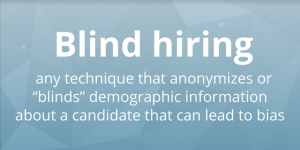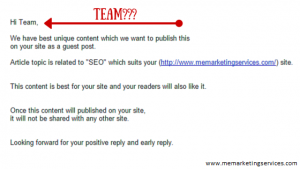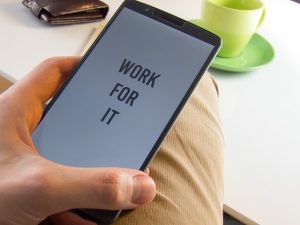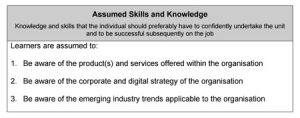
Vector image by free pik
Is this title click bait? Maybe. Maybe not. We are all searching for ways to be more productive. Type “personal productivity” into Google and you will receive a mind-numbing 341,000,000 results. There is no shortage of information available to help us be or feel more productive. Some of the articles out there are excellent and some…well…not so much.
For example, a common tip for productivity is to say “no” more often and it is suggested in a way that to do it, one just flips a switch and says it. No.
Do you know anyone who says yes too much? Me too. They want to be helpful; they fear hurting the other person’s feelings or being perceived as rude; they don’t want to miss an opportunity or have no idea why, they just can’t say no.
People who say yes all the time know that it hurts their productivity and telling them to stop doing it, full stop, is a terrible tip. What makes us productive or unproductive is far more complex than what many blog posts and articles lead us to believe.
That is why this article will not only provide tips, but it will also include a conversation about behavior change. If you want to be more productive, you must change your thoughts and behavior. In fact, understanding behavior change is more important than the tips. Let’s start there.
Behavior change and why it is so freaking hard
Every person on the planet struggles with changing their own behavior. Everyone.
Every person is human, humans have brains, and it’s well documented that our brains resist change. (See here, here, and here.) It is no wonder that (depending on the source) about 80% of New Year’s resolutions and around 70% of organizational change initiatives fail.
When it comes to productivity, if there is something you want to change about your behavior to be more productive, know that your brain is working against you to make that change. Change is uncomfortable, it requires intention and forethought. The more effort required, the less likely the change will be successful. An easy example is weight loss. It requires less effort over time to lose 3lbs pounds than it does to lose 23lbs. You can imagine the success rate of people wanting to lose 3 pounds versus 23.
This means the more effort required, the less likely you will succeed. Not very motivating, is it? Knowledge is power and by knowing this, it means you can approach behavior change differently.
- Define success. What will be different as a result of changing your behavior and what impact will it have? Understanding this will ground you in the reason why you are trying to change your behavior in the first place.
- Start small and narrow. If you want to be more productive. Try one new technique over a sustained period of time. Avoid trying to apply multiple new tips at once.
- Give it time. How long does it take to change a behavior? If you said 21 days, you have fallen victim to a misnomer. It is more like two months.
- Enlist a pal. Tell another person what you are trying to do and ask them to check-in with you about it. Peer accountability is powerful.
- Set reminders. We get distracted, lack sleep, or just forget. How will you remember and remain focused on this change you want to make?
Just because you have tried to change your behavior and failed in the past does not mean you are weak, ill-disciplined, or ineffective. It means you are human.
Understanding the basics of behavior change will position you to harness your productivity and maximize it.
529 Tips
Does the number even matter? It does not. This article will provide three. They are the most compelling to me and have made a significant impact on my productivity. Perhaps they will be helpful to you.
If you are already doing these and need other ideas, you know what to do. Give it a Google. Millions of options await. Whatever resonates with you and helps you meet your goal is good.
Tip #1 – End your day well
Whether we compare ourselves to others, have a saboteur in our head telling us “You’re not doing enough”, or focus more what is undone rather done, it is not unusual to have a belief of being unproductive. If this is the case, then the next step is to change the belief, not behavior. Intentional thought about what you have accomplished is the next best step.
For example, a former boss of mine had a practice of concluding his workday by reflecting on what he accomplished. It did not matter if what he accomplished was on his list or not. He wrote it down and took a minute or two to ponder the value of that accomplishment. Then, he thought about another. Sometimes, the accomplishment was eating lunch or just making it to his meetings on time. Items clearly not on a to-do list though by spending five minutes thinking about their value, he felt better about his day.
Try this. At the conclusion of your day, spend 15 minutes focusing solely on what you accomplished and the value of that accomplishment. Your beliefs about being unproductive may very well change.
Tip #2 – Manage your energy, not your time
Productivity is really about energy management and what research has found is that our minds and bodies fluctuate between energy expenditure and recovery. We work best when we “oscillate” between these two. However, what so many of us do is expend energy by treating our minds and bodies like computers with a start button. We expect to perform at the same processing speed all day. We go to back to back meetings and swallow our lunch while checking email. While we may perform okay, often we end our day with a short temper and a headache. We are spent.
Taking short, intermitted breaks throughout the day enables our body and mind to recover from energy expenditure. Ideally, take a break every 90 minutes. Make it physical and a complete divergence from work. A break is not staying seated, staring at social media instead of a spreadsheet. Rather, get up, walk for five minutes, stretch, breathe deep, channel Richard Simmons and dance to some oldies. It doesn’t matter. Move your body, think about something else, then get back to work.
Tip #3 – Write it down
Early in my career, a more senior co-worker said to me “Amy, you come in and land on your job. While you work hard, I don’t think what you’re doing now is a valuable use of your time.” I was offended but only because she was right. I rarely had a plan. I have learned a lot over the years and now I do.
If you do not have a list right now made up of actions to be taken both personally and professionally, then you are not working as productively as you could be. I bet you forget things, lose sight of good ideas, or maybe even wake up some days wondering why you haven’t read that book, traveled to that place or started that business.
What has been published widely (and we’ve all experienced) is that our brains are not designed to keep track of tasks, errands, and ideas. Rather, our brains are for critical and creative thinking, problem-solving, and decision-making. We cannot possibly remember everything we need and want to do.
Write it down and not just what you need to do for work but write down what you want to accomplish in life. Truly. Putting our goals and intentions in a place outside of our head increases the chances of it happening.
Personal productivity is a popular topic for many of us, but it begins with behavior change. Understanding it and practicing change in small increments is what positions us to perform.
This article originally appeared on the Growth Partners Consulting blog.
Business & Finance Articles on Business 2 Community
(84)
Report Post








